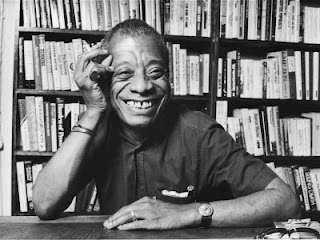James Arthur Baldwin (August 2, 1924 – December 1, 1987) was an American novelist, essayist, playwright, poet, and social critic.
Baldwin's essays, such as the collection Notes of a Native Son (1955), explore palpable yet unspoken intricacies ofracial, sexual, and class distinctions in Western societies, most notably in mid-20th-century America, vis-à-vis their inevitable if unnameable tensions with personal identity, assumptions, uncertainties, yearning, and questing.[1]Some Baldwin essays are book-length, for instance The Fire Next Time (1963), No Name in the Street (1972), andThe Devil Finds Work (1976).
His novels and plays fictionalize fundamental personal questions and dilemmas amid complex social and psychological pressures thwarting the equitable integration of not only blacks yet also of male homosexuals—depicting as well some internalized impediments to such individuals' quest for acceptance—namely in his second novel, Giovanni's Room (1956), written well before the equality of homosexuals was widely espoused in America.[2]Baldwin's best-known novel is his first, Go Tell It on the Mountain (1953).


No comments:
Post a Comment